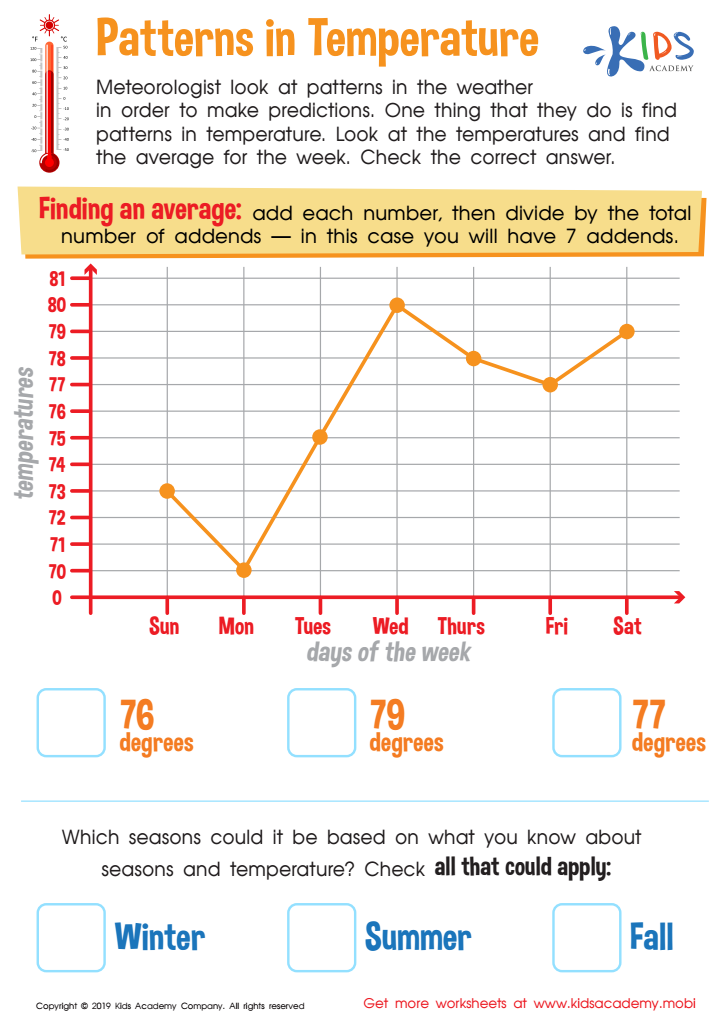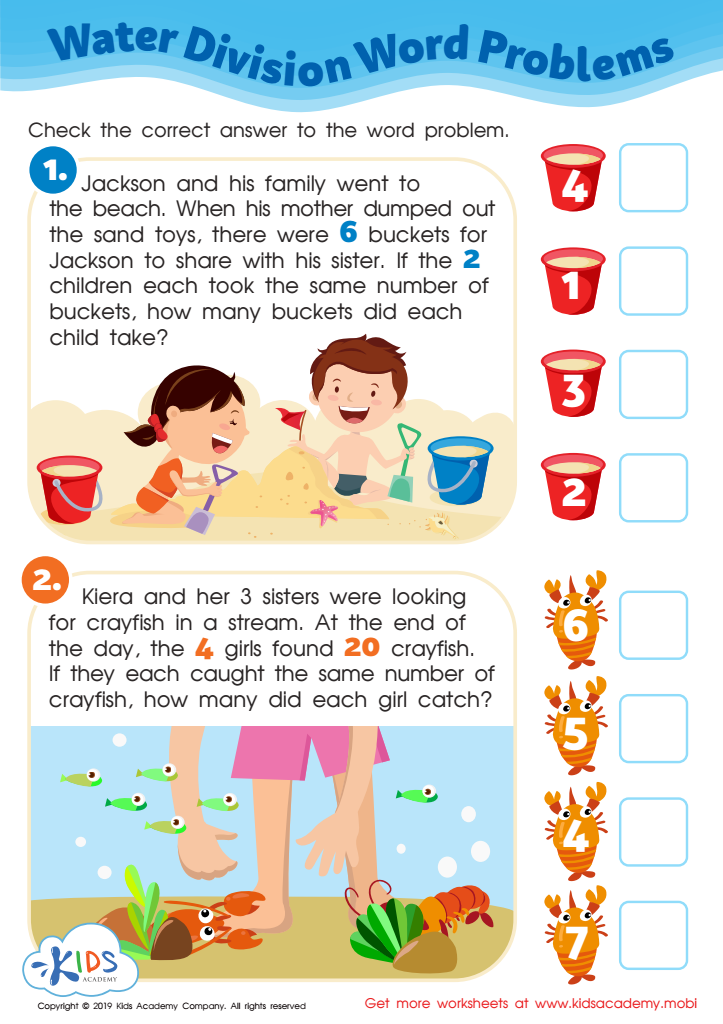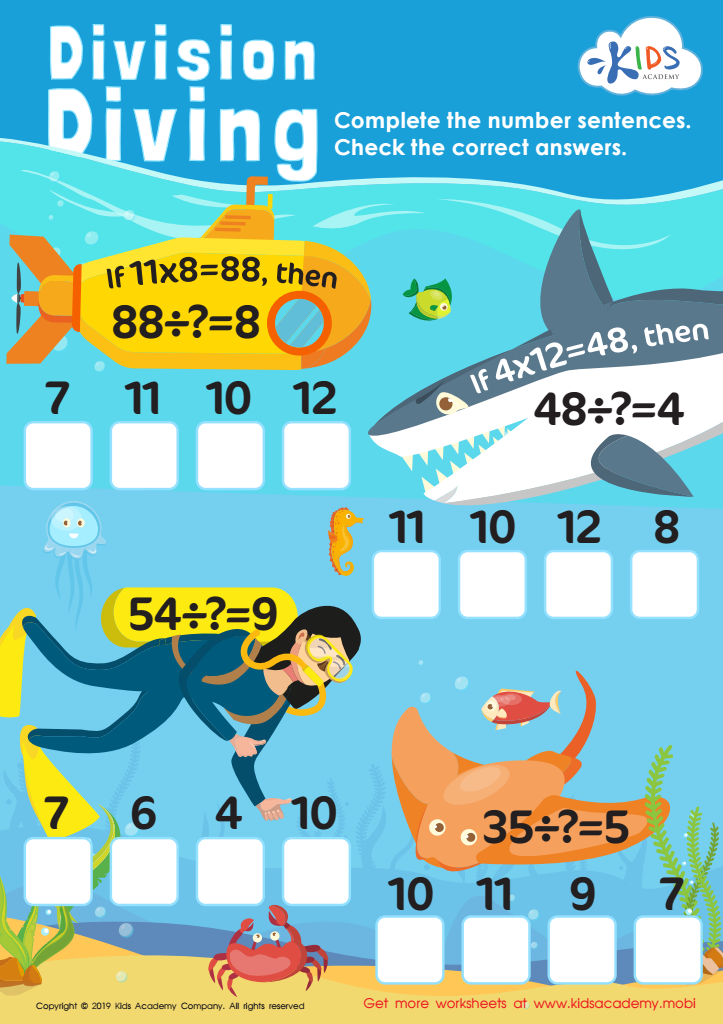Mathematical reasoning Normal Science Worksheets for Ages 5-8
3 filtered results
-
From - To
Unlock the world of mathematical reasoning with our Normal Science Worksheets designed for ages 5-8. These engaging, age-appropriate activities help children develop critical thinking and problem-solving skills through fun science-based tasks. Each worksheet combines math with real-world scientific concepts, enabling kids to apply reasoning in varied scenarios. Perfect for classroom or at-home learning, our worksheets make mastering math an adventurous experience. Encourage your young learner's curiosity and intelligence with these expertly crafted educational tools, tailored to support growth in both mathematics and science. Dive in and discover the joy of learning with our valuable resources!


Patterns in Temperature Worksheet


Water Division Word Problems Worksheet


Division Diving Worksheet
Mathematical reasoning is a foundational skill that significantly impacts a child's cognitive development and overall academic success. Introducing children to these concepts between the ages of 5-8 is crucial for several reasons.
Firstly, early engagement with mathematical reasoning fosters critical thinking and problem-solving skills. Children learn to analyze situations, observe patterns, and make logical conclusions, which are essential skills not only in mathematics but across all subjects and everyday life.
Secondly, this early exposure helps in building a strong numerical foundation. Numbers become more than mere symbols; they begin to represent quantities and relationships. This fundamental understanding is crucial as it becomes the basis for more complex math skills encountered in later years.
Moreover, developing mathematical reasoning at this age enhances perseverance and resilience. Children learn that problems may have multiple steps and solutions, teaching them patience and persistence.
Additionally, these early math experiences often bring greater success and confidence in later academic pursuits. When children feel competent in math, it boosts their overall self-esteem and attitude towards other challenging tasks.
Finally, fostering an early interest in math encourages lifelong curiosity and learning. Parents and teachers investing time and resources into this critical period ensure children are well-prepared for future academic challenges, promoting a generation of innovative thinkers and problem-solvers with a deep appreciation for the value of mathematics in understanding the world.

 Assign to My Students
Assign to My Students















